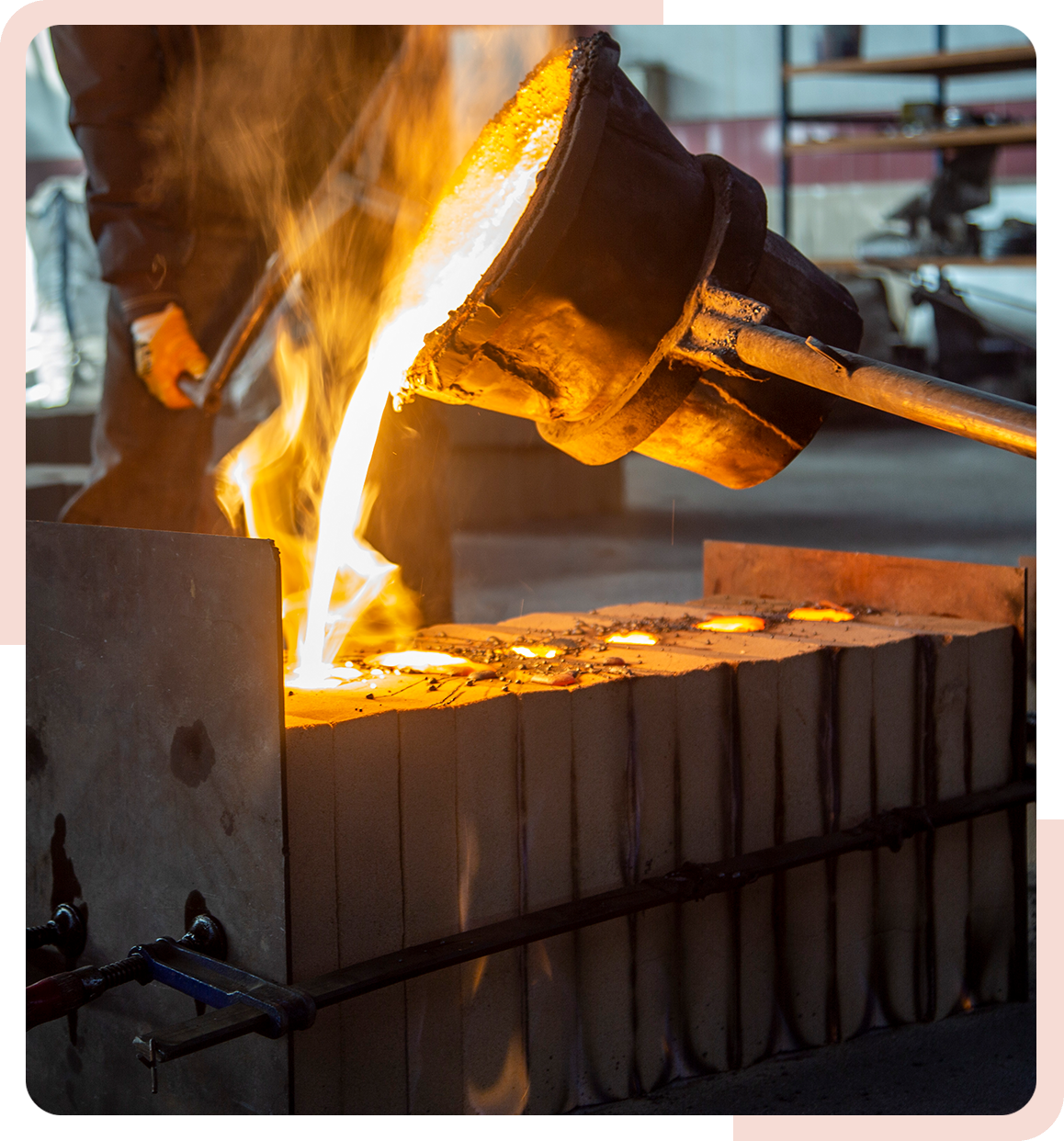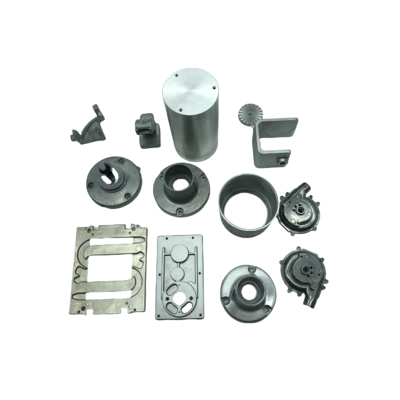Tips for selecting a trusted Aluminum Casting Company with experience
Wiki Article
Just How Aluminum Foundries Add To Numerous Industries: An Extensive Summary
Aluminum foundries function as vital vendors across numerous fields, consisting of automobile, aerospace, building, and electronic devices. They produce parts that are not just lightweight but additionally sturdy, improving the performance of various items. With advanced casting techniques and a dedication to sustainability, these shops are adjusting to meet advancing sector demands. As they introduce, the impact of light weight aluminum spreadings on different applications elevates important questions concerning the future of manufacturing. What exists ahead for this essential industry?The Duty of Light Weight Aluminum Foundries in the Automotive Industry
As the vehicle industry progressively embraces lightweight products to boost gas effectiveness and efficiency, aluminum shops play an important function in this advancement. These centers focus on the production of light weight aluminum castings, which are crucial elements in contemporary automobiles. By supplying high-strength, lightweight components, aluminum factories make it possible for manufacturers to decrease the total weight of lorries, eventually leading to boosted fuel economy and decreased discharges.Light weight aluminum's resistance to rust better boosts car long life, making it an eye-catching selection for automakers. Shops utilize sophisticated strategies such as die casting and sand casting to create specific and elaborate components, ensuring that they fulfill rigid industry standards. Furthermore, the ability to recycle aluminum successfully adds to a much more lasting manufacturing procedure. As the auto sector remains to innovate, light weight aluminum foundries will continue to be pivotal in supplying the materials essential for the future generation of automobiles, sustaining both efficiency and environmental goals.

Aerospace Applications of Aluminum Castings
Light weight aluminum castings are essential to the aerospace sector, supplying a combination of light-weight toughness and sturdiness that is vital for airplane efficiency. These spreadings are used in different components, such as engine parts, structural frameworks, and touchdown gear, where weight decrease is essential for gas effectiveness and overall safety. The flexibility of light weight aluminum allows for complex geometries that boost aerodynamic effectiveness while maintaining structural stability.Additionally, improvements in casting technologies have improved the precision and surface area coating of light weight aluminum components, lowering the demand for considerable post-processing. This efficiency not just increases manufacturing timelines yet also decreases costs, making light weight aluminum an appealing option for manufacturers. The deterioration resistance of aluminum guarantees durability and reliability in rough operating settings, better developing its role in aerospace applications. As the sector progresses, light weight aluminum castings proceed to be a vital material, driving advancement and sustaining the advancement of next-generation aircraft.
Construction Industry Advancements Via Aluminum
The building and construction industry has actually progressively taken on light weight aluminum due to its light-weight properties and versatility, paralleling its successful applications in aerospace. Advancements in aluminum design have caused stronger, more reliable structures, allowing home builders and architects to explore brand-new opportunities. The material's resistance to deterioration and low maintenance requires make it especially appealing for both commercial and domestic tasks.Aluminum's convenience assists in the development of complex layouts, permitting visual enhancements that were formerly challenging with traditional products. Prefabrication strategies have actually likewise developed, utilizing aluminum to lower building and construction time and expenses substantially. Furthermore, the power performance of aluminum systems-- such as window frameworks and roof covering-- adds to lasting building methods, straightening with contemporary environmental requirements. As the construction industry remains to accept these advancements, light weight aluminum's function is expected to broaden, driving additional advancement and contributing to the growth of resistant frameworks.
Electronics and the Demand for Lightweight Aluminum Components
With the quick improvement of innovation, the demand for lightweight light weight aluminum parts in the electronic devices industry has surged. As gadgets become a lot more portable and mobile, manufacturers seek materials that use both sturdiness and weight decrease. Light weight aluminum, with its exceptional strength-to-weight proportion, has emerged as a recommended selection for parts such as housings, warm sinks, and structural supports.Making use of light weight aluminum not just improves product efficiency yet additionally adds to energy performance, as lighter tools need much less power throughout procedure. Additionally, light weight aluminum's superb conductivity makes it suitable for digital applications, guaranteeing effective warmth dissipation and minimizing the risk of getting too hot.
As customer preferences change towards sleek and light-weight gadgets, aluminum foundries play a crucial duty look here in meeting the advancing needs of the electronics industry (Aluminum Casting Company). Their capability to generate top quality and accurate light weight aluminum parts supports development, enabling makers find out this here to press the borders of design and performance
Lasting Practices in Aluminum Foundries
As the electronic devices market significantly prioritizes sustainability, aluminum factories are adapting their practices to align with these environmental goals. Lots of foundries are executing recycling programs that reclaim light weight aluminum scrap, greatly decreasing the need for basic materials and minimizing waste. By utilizing energy-efficient innovations, these centers are lowering their carbon impact; for circumstances, utilizing electric heating systems as opposed to typical gas-fired ones can bring about significant energy financial savings.In addition, light weight aluminum shops are purchasing water conservation actions, such as closed-loop systems that reuse water utilized in cooling down procedures. These techniques not just lower water intake but also reduce the environmental impact associated with wastewater discharge. Furthermore, many shops are checking out renewable power resources, such as solar and wind power, to fulfill their power requires sustainably. With these initiatives, light weight aluminum foundries exemplify a dedication to environmental stewardship while continuing to fulfill the demands of the electronic devices sector.
Future Trends in Light Weight Aluminum Factory Technologies
Emerging modern technologies are positioned to transform aluminum shops, improving efficiency and product high quality while progressing sustainability efforts. Advancements such as expert system and equipment discovering are expected to enhance production processes by forecasting devices failures and improving source allocation. The combination of sophisticated robotics will improve operations, lowering labor prices and reducing human error.Additive manufacturing, or 3D printing, is likewise obtaining grip, making it possible for the manufacturing of complicated geometries that were previously unattainable with traditional methods. This shift can lead to substantial product cost savings and reduced waste. Additionally, wise foundries utilizing IoT (Internet of Things) technologies will certainly enable real-time tracking and information evaluation, promoting positive decision-making.
Lastly, the adoption of cleaner melting technologies and recycling techniques will certainly further lower the ecological impact of light weight aluminum foundries, making them extra lasting. Collectively, these fads signify a future where aluminum shops can run with greater efficiency and obligation.
Frequently Asked Inquiries
What Are the Ecological Influences of Aluminum Foundries?

How Do Foundries Make Sure Quality Control in Light Weight Aluminum Spreading?
Foundries ensure quality assurance in aluminum spreading by applying rigorous assessment processes, utilizing advanced modern technology, performing normal material testing, and sticking to industry criteria, therefore preserving uniformity and integrity in their finished items. aluminum casting.What Is the Average Lifespan of Aluminum Cast Parts?
The typical life expectancy of light weight aluminum actors components usually varies from 10 to 50 years, relying on variables such as ecological conditions, usage, and maintenance. Correct care can greatly improve their sturdiness and efficiency with time.Exactly How Are Aluminum Alloys Selected for Specific Applications?
Aluminum alloys are selected based on elements such as stamina, corrosion resistance, weight, and thermal conductivity. Designers assess the certain needs of applications to establish one of the most appropriate alloy for finest efficiency and sturdiness.What Are the Safety And Security Rules for Light Weight Aluminum Factory Workers?
Security regulations for aluminum factory workers include personal safety equipment requireds, ventilation demands, exposure restrictions to dangerous products, and methods for dealing with liquified metal. Compliance warranties worker safety and decreases health threats connected with foundry operations.As the automobile market significantly accepts light-weight materials to enhance fuel performance and performance, aluminum foundries play an essential role in this development. As customer preferences change towards streamlined and light-weight devices, aluminum factories play a vital role in fulfilling the advancing needs of the electronics industry. As the electronics industry increasingly prioritizes sustainability, light weight aluminum factories are adapting their methods to align with these environmental objectives. Lots of foundries are executing recycling programs that redeem aluminum scrap, significantly reducing the need for raw materials and decreasing waste. Safety policies for aluminum factory workers consist of individual protective devices requireds, air flow requirements, direct exposure limits to unsafe products, and procedures for dealing with liquified metal.
Report this wiki page